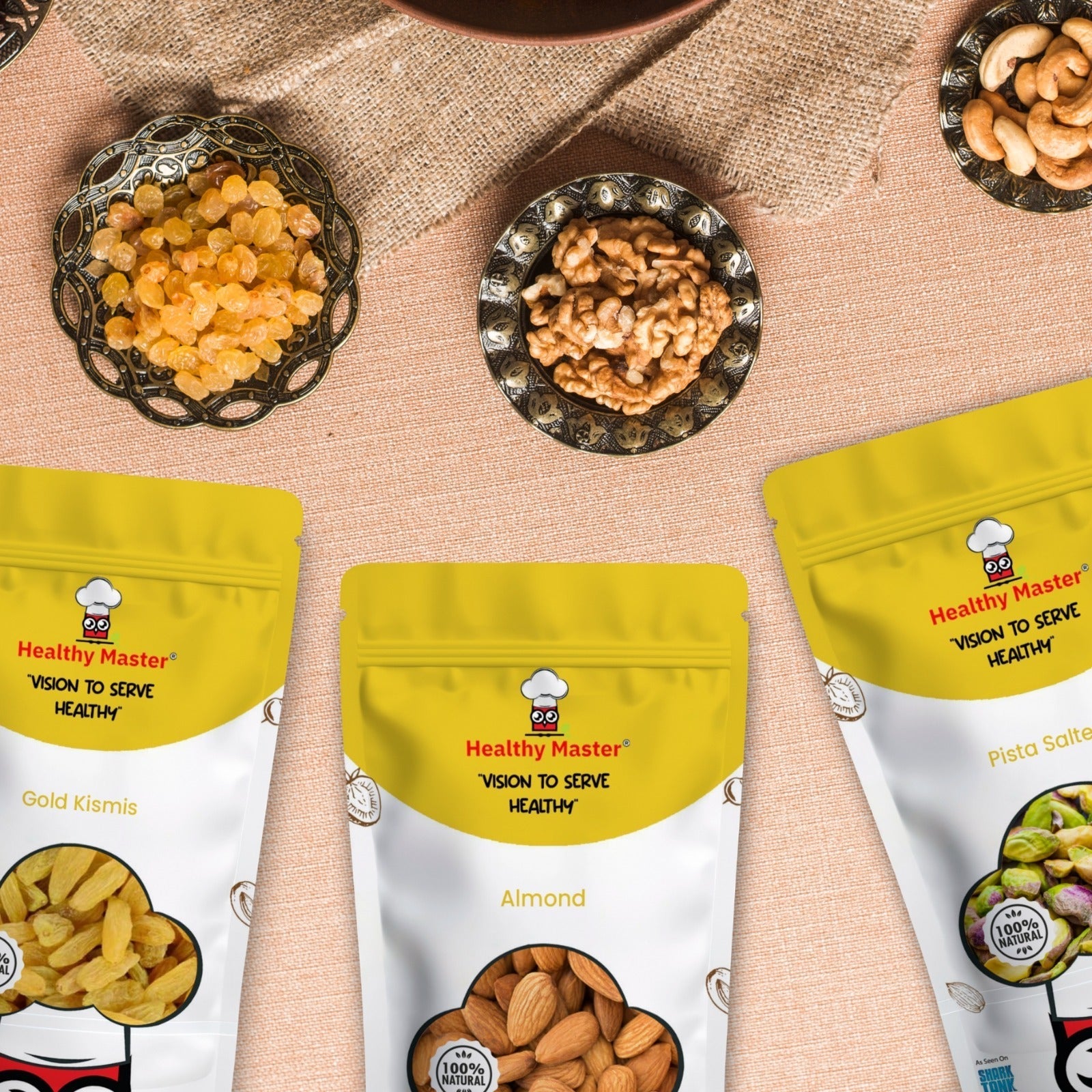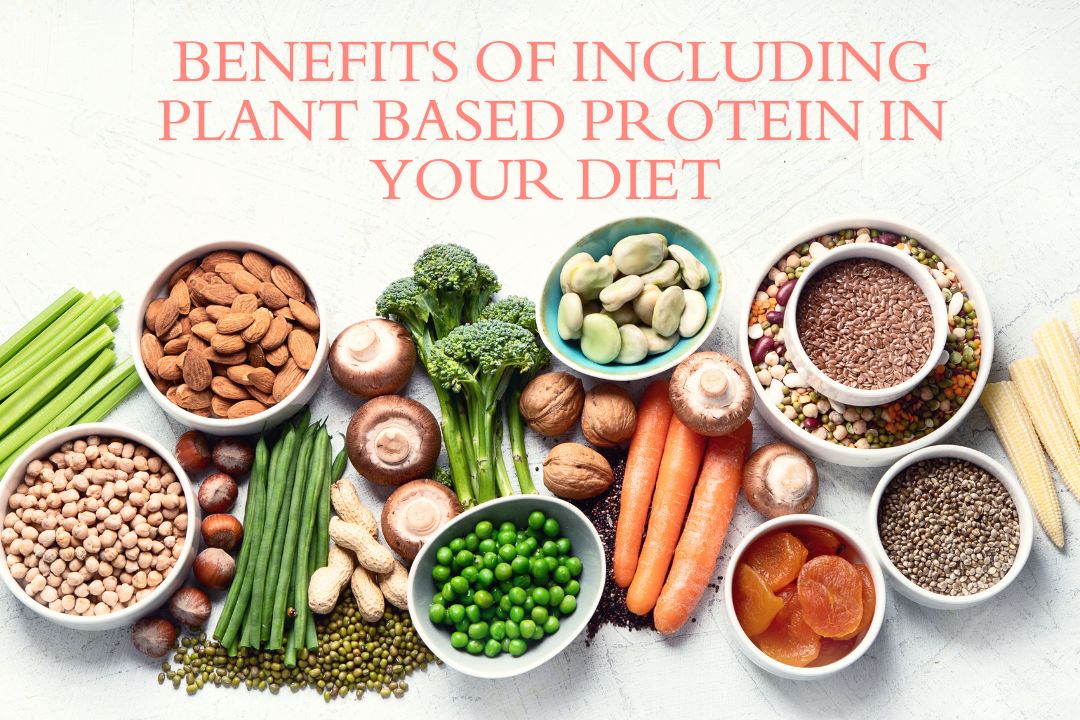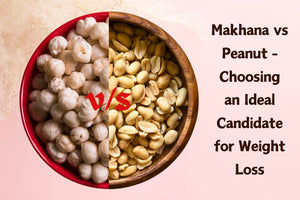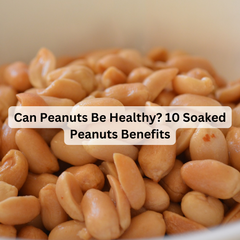If you plan to follow a balanced diet, plant based proteins can be an excellent addition. They nourish your body with essential nutrients and also support your health goals. In recent years, there has been a significant shift towards plant-based diets as people are becoming more conscious of their health and environmental benefits. This content discusses some of the best plant protein sources you can choose to include in your diet and the health benefits you can enjoy by doing so.
Nutritional Benefits of Plant Based Proteins

Rich in Essential Nutrients: Plant based foods are are not just rich in proteins but also contain many essential nutrients to nourish your body. Foods like nuts, legumes, whole grains, and seeds are considered to be excellent sources of vitamins, minerals, and fiber. For instance, buckwheat and quinoa are some of these protein sources that provide all the nine essential amino acids. This makes them a complete protein source compared to those found in animal products.
Low in Saturated Fats: Unlike animal-based protein, these proteins are generally low in saturated fats. They are also free from cholesterol. High intake of saturated fat and cholesterol may increase the risk of heart disease. Therefore, by choosing plant-based proteins, you will be able to reduce the intake of these harmful substances and promote cardiovascular health.
High in Fiber: Plant based protein foods are also high in fiber. Fibers help the body with digestion and regulate the blood sugar levels. They can also promote a feeling of fullness for a longer period of time. This prevents overeating and helps with weight management. Lentils, beans, and chickpeas are some of the fiber-rich plant based protein foods you can include in your diet.
Health Benefits of Plant Based Proteins

The health benefits offered by plant based protein are numerous. For instance, consuming plant based protein will lower the risk of heart disease, type 2 diabetes, and certain types of cancer. They are also high in fiber, vitamins, and minerals and very low in saturated fat and cholesterol. Therefore, if you are looking for an option to manage your weight, improve your gut health, or simply improve your eating habits, choosing plant based protein could be a great option.
Improved Heart Health
Switching to a plant based protein diet will significantly improve your heart health. According to experts, diets rich in plant-based foods can lower blood pressure, decrease the risk of heart disease, and reduce the cholesterol levels in the body. The antioxidants, fiber, and healthy fats found in plant based protein sources all contribute to a healthy heart.
Weight Management
Plant-based proteins are also highly effective in managing and reducing weight. For instance, foods like beans, lentils, and whole grains are very rich in nutrients while being low in calories. This will allow you to feel full without consuming excess calories. The high fiber content also helps in maintaining a healthy weight by reducing hunger and promoting satiety.
Reduced Risk of Chronic Diseases
Many studies have also linked plant-based diets with reduced risk of chronic diseases like diabetes, metabolic syndrome, and different types of cancer. They also contain good amounts of antioxidants, anti-inflammatory properties, and phytochemicals which protect the body from these chronic diseases. For instance, including a variety of colorful vegetables and fruits in your diet enrich your body with antioxidants that help in combating oxidative stress and inflammation.
Improved Digestion
You will also notice a huge difference in your digestive health and performance when you switch to a plant-based diet. The fiber content in plant-based foods promotes digestive health and helps you to maintain an ideal weight. It also adds bulk to the stool and facilitates regular bowel movement, preventing constipation and promoting a healthy gut. Additionally, following a diet that is rich in plant-based foods supports a diverse and balanced gut microbiome, which is vital to maintaining overall digestive health.
Simple Plant-Based Food Options to Try

Beans and Lentils: Different types of beans and lentils like black beans, chickpeas, lentils, as well as kidney beans are considered excellent sources of protein. On the other hand, they are also very rich in fiber, vitamins, minerals, and fiber, which can be highly beneficial for your body’s overall health. You can easily add them to salads, stews, soups, or different types of curries.
Nuts and Seeds: Almonds, pumpkin seeds, chia seeds, hemp seeds, etc. are also some amazing options for plant-based protein. For instance, almonds are high in protein as well as a great source of healthy fats, fiber, and vitamin E. On the other hand, chia seeds are also another amazing protein source that is packed with fiber and Omega-3 fatty acids. You can easily incorporate them into your diet by even sprinkling them in smoothies, salads, or juices.
If you are looking for some premium quality nuts and seeds, you can find some of the best at Healthy Master. There is a huge collection of seeds and nuts to choose from. There are also different types of ready-to-go healthy snacks in the store that you can choose for healthy munching.
Quinoa: This is also a complete plant based protein source containing all the nine essential amino acids. It is a great option for people who want complete protein sources without depending on nonvegetarian foods and meats. You can use quinoa as a base for salads, in bowls, or even as a side dish. It is also a gluten-free grain, which makes it a great option for people with gluten sensitivity.
Apart from these, there are also many other options that you can include in your diet when you are looking for a complete plant based protein source. Some of these options are grains like Amarnath and Farro, vegetables like broccoli, spinach and Brussels sprouts, tofu, soy milk, almond milk, avocado, etc.
Conclusion
Incorporating plant based proteins in your diet may have numerous health and holistic benefits. From improving heart health and aiding in weight management to supporting sustainable agriculture, the advantages are many.
Plant based proteins are a powerful choice for people who want to improve their health and also support nature. So, why not start today? Enjoy the real benefits of nature and enjoy the freedom of good health and wellness.
FAQs
-
What are the health benefits of choosing plant-based protein?
Plant-based proteins are often rich in essential nutrients, including fiber, vitamins, minerals, and antioxidants. They are typically less abundant in animal-based proteins. Consuming plant-based proteins can help reduce the risk of chronic diseases such as heart disease, hypertension, type 2 diabetes, and certain cancers.
-
Can plant-based proteins provide all the essential amino acids that my body needs?
Yes, while individual plant-based proteins might not contain all the essential amino acids, combining different sources can ensure you receive a complete amino acid profile.
-
How do plant-based proteins compare to animal-based proteins in terms of protein quality and quantity?
Plant-based proteins can be just as effective as animal-based proteins in terms of protein quality and quantity. While some plant-based proteins may have lower amounts of certain amino acids, eating a diverse range can ensure you get the necessary amino acids.
-
Are plant-based proteins more sustainable for the environment compared to animal-based proteins?
Yes, plant-based proteins are generally more sustainable and have a lower environmental impact compared to animal-based proteins. The production of plant-based proteins typically requires less land, water, and energy, and generates fewer greenhouse gas emissions.
-
Are there any potential drawbacks to relying solely on plant-based proteins?
While plant-based proteins offer many health benefits, it is important to ensure you are consuming a balanced and varied diet. Some nutrients, such as vitamin B12, iron, and omega-3 fatty acids, are less abundant in plant-based foods.
 Deal of the week : Trial Snack Box - 18 Wholesome Delights Just at ₹ 899.00
Deal of the week : Trial Snack Box - 18 Wholesome Delights Just at ₹ 899.00





















